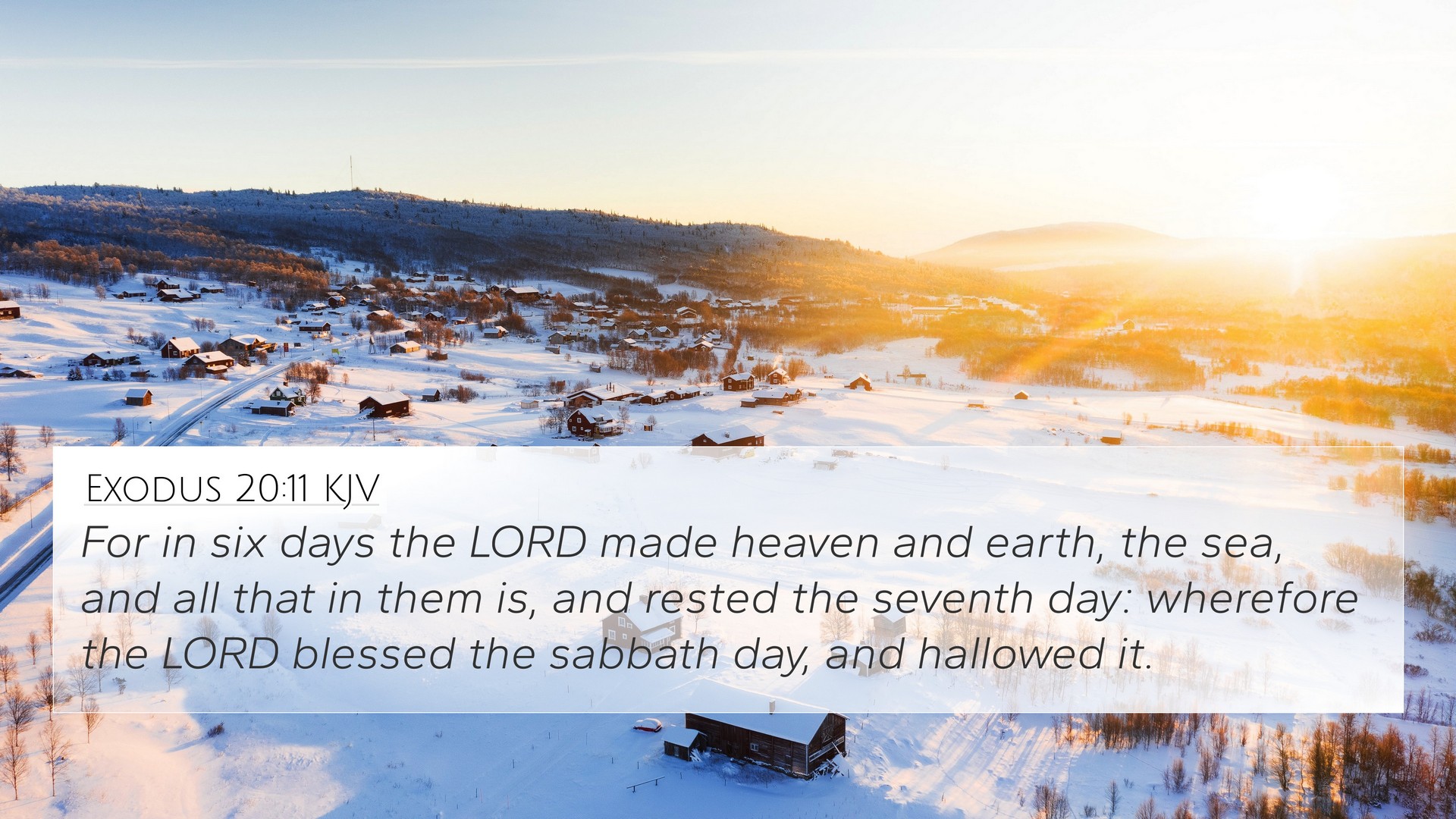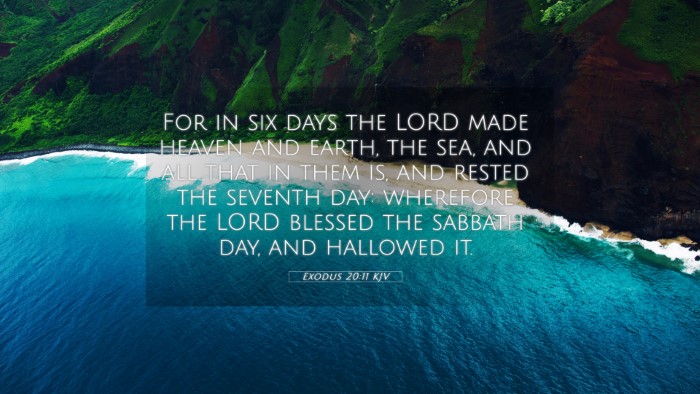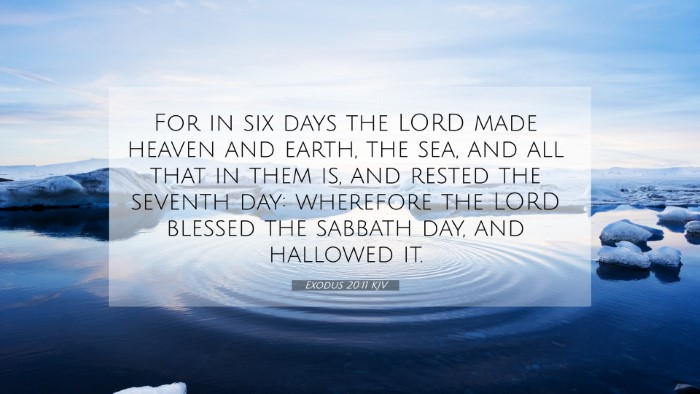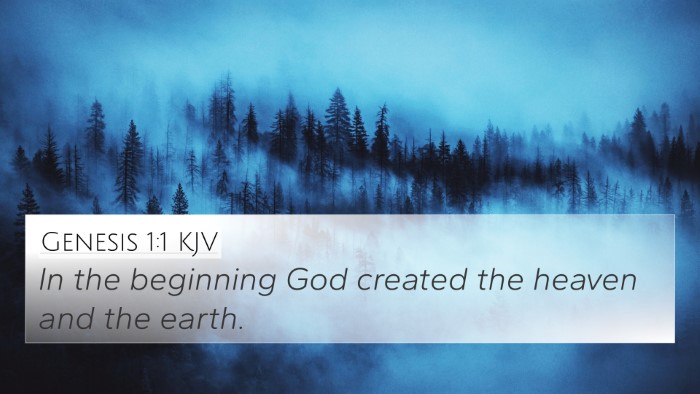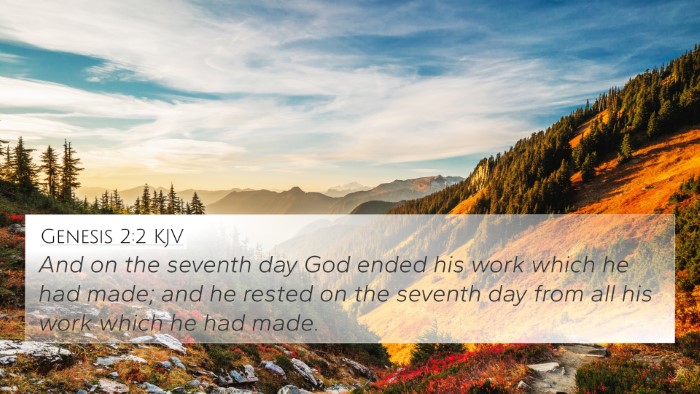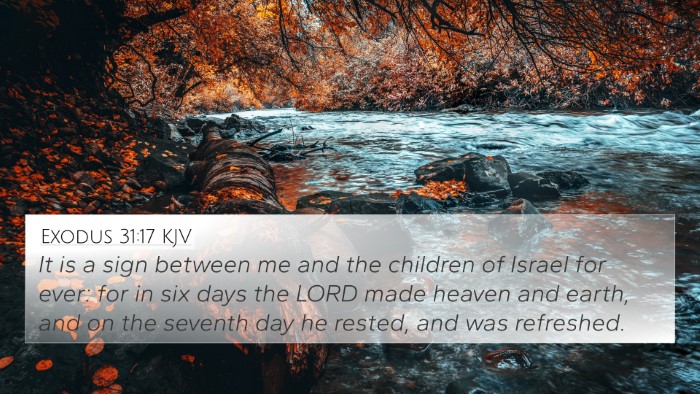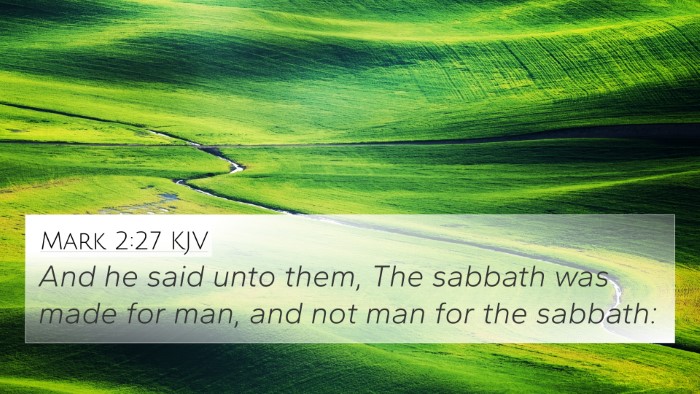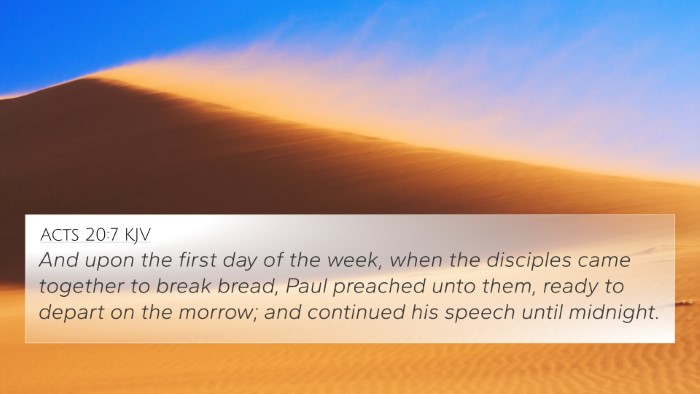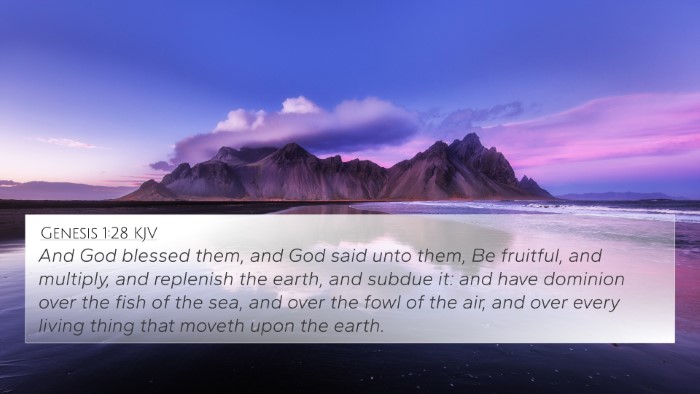Understanding Exodus 20:11
Exodus 20:11 states: "For in six days the LORD made heaven and earth, the sea, and all that in them is, and rested the seventh day: wherefore the LORD blessed the sabbath day, and hallowed it." This verse is part of the Ten Commandments and emphasizes the significance of the Sabbath.
Summary of Insights
This verse signifies God’s creation of the world and His rest on the seventh day, establishing a divine pattern and the importance of Sabbath observance for humanity.
Commentary Insights
Combining insights from various public domain commentaries:
- Matthew Henry: He notes that God completed His work in six days and rested on the seventh, which becomes a model for human work and rest. He emphasizes that the rest of God was not due to exhaustion but rather a completion of creation, setting aside a time for sacred observance.
- Albert Barnes: Barnes elaborates that God’s rest sanctifies the Sabbath and highlights the importance of remembering this day. He discusses the broader implications of this rest for humanity and its moral significance, urging people to rejoice in this divine institution.
- Adam Clarke: Clarke provides a detailed analysis of the creation week. He points out that the Sabbath is a reminder of God’s creative power and a symbol of spiritual rest for believers. He connects the rest of God to the spiritual rest that Jesus provides.
Connections to Other Bible Verses
Exodus 20:11 can be cross-referenced with several other verses to enhance understanding:
- Genesis 2:2-3: "And on the seventh day God ended his work which he had made; and he rested on the seventh day from all his work which he had made." This verse directly correlates with the creation narrative.
- Hebrews 4:4: "For he spake in a certain place of the seventh day on this wise, And God did rest the seventh day from all his works." This passage affirms the significance of the Sabbath rest in Christian theology.
- Mark 2:27: "And he said unto them, The sabbath was made for man, and not man for the sabbath." Jesus highlights the Sabbath's purpose, reinforcing its importance for humanity's well-being.
- Colossians 2:16-17: "Let no man therefore judge you in meat, or in drink, or in respect of an holyday, or of the new moon, or of the sabbath days: Which are a shadow of things to come; but the body is of Christ." This suggests a transition of understanding regarding Sabbath observance for New Testament believers.
- Isaiah 58:13-14: "If thou turn away thy foot from the sabbath, from doing thy pleasure on my holy day; and call the sabbath a delight, the holy of the LORD, honorable; and shalt honor him, not doing thine own ways, nor finding thine own pleasure, nor speaking thine own words." This passage encourages reverence for the Sabbath.
- Exodus 31:17: "It is a sign between me and the children of Israel for ever: for in six days the LORD made heaven and earth, and on the seventh day he rested, and was refreshed." This emphasizes the Sabbath as a covenant sign.
- Deuteronomy 5:12-15: Here, the command to observe the Sabbath reflects on God's deliverance of Israel from Egypt, linking rest with redemption.
- Revelation 14:7: "Saying with a loud voice, Fear God, and give glory to him; for the hour of his judgment is come: and worship him that made heaven, and earth, and the sea, and the fountains of waters." This verse connects worship of God as Creator with the call for Sabbath observance.
- Matthew 11:28: "Come unto me, all ye that labor and are heavy laden, and I will give you rest." Jesus invites believers to find their rest in Him, hinting at the true spiritual essence of the Sabbath.
Theological Implications
The primary message of Exodus 20:11 revolves around understanding God’s creative authority and the instituted rest that mirrors His divine example. The connections between Bible verses illustrate a theme of rest and remembrance, which is integral to both Old and New Testament teachings.
Practical Applications
Incorporating the lessons from Exodus 20:11 into daily life can lead to:
- Prioritizing a day of rest to honor God’s command.
- Understanding the spiritual significance of rest beyond mere physical recuperation.
- Engaging in worship and reflection, connecting with the historical context of the Sabbath.
- Utilizing cross-referencing tools to deepen Bible study and explore related themes.
Conclusion
Exodus 20:11 encapsulates vital truths regarding creation and Sabbath observance. By engaging with this verse and its connected scriptures, individuals can experience a fuller understanding of God’s intent for rest and the ongoing relevance of Sabbath in spiritual practice.
